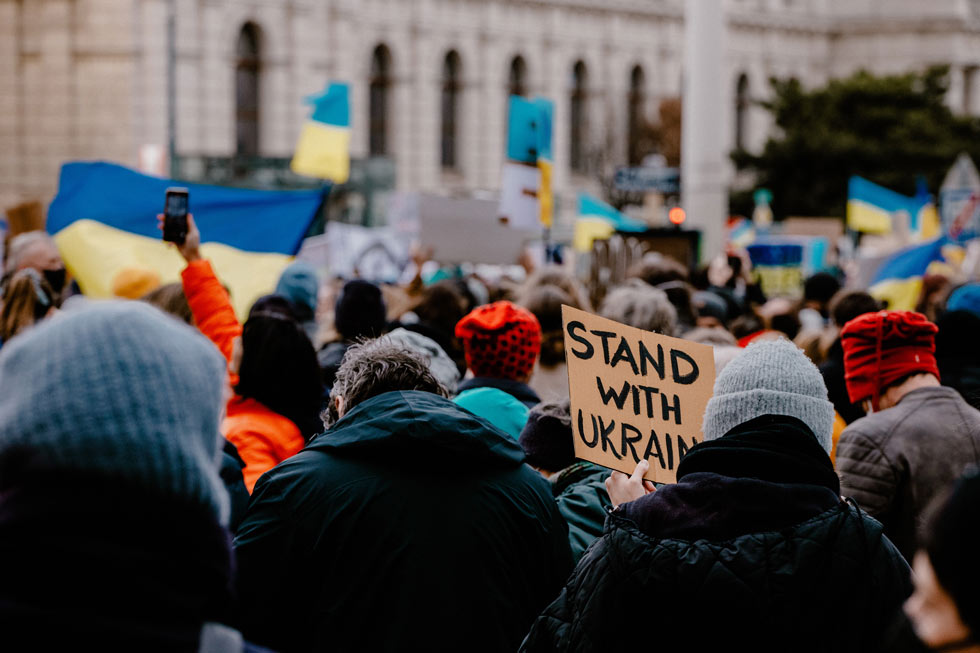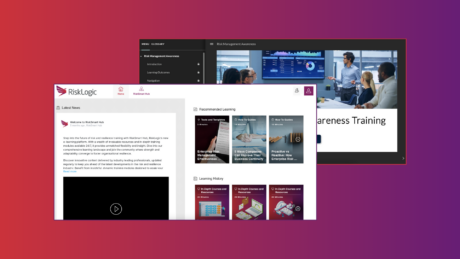-
Url copied to clipboard.
Written by Commercial Marketing Manager, Ollie Law, and the RiskLogic Consulting Team.
Recently, McDonalds announced it would be suspending all operations in Russia and closing over 650 of its restaurants. The continued pay out of 62,000 salaries alongside an immediate stop to sales will equate to a loss of 9% global revenue. Their exit was followed by a chain of other suppliers like Coca-Cola and Starbucks.
These moves are as much a sanction on Putin’s war as they are a statement to the world. Soon, if not already, it will be common expectation that all businesses exit from Russia, particularly as institutions like Yale publicly compile lists of those who remain.

With this expectation comes a balancing act of moral responsibility and serious financial loss. Millions of people are about to lose their jobs, shareholders may become uneasy and further recessions will be announced as businesses lose key trade options in Russian Markets.
Tim Archer, RiskLogic’s Head of Crisis Communications reiterates the entire community is sharing the load and knock-on effects of the sanctions.
We are all having to reach into our pockets and pay our bit. No one loves the idea of paying $3/litre for petrol, but it’s the collective price we are having to pay to try to stop a war.
Media always search for new angles
With the continuous live coverage of the invasion of Ukraine stretching into weeks and possibly months, journalists continuously search for stories with fresh angles. This creates both an opportunity and a risk for businesses that trade in Russia.
“Some businesses have achieved some good PR out of their withdrawal from Russia, but this must be carefully stage managed,” says Tim Archer.

“Organisations that are still active in Russia need to pay close attention to their decision. They may not be able to afford the financial hit, but they need to weigh up the reputational hit they could take from not withdrawing.”
Adapting to change
The tariffs that were inflicted on Australian barley farmers by China in 2020 provide an example of the need to adapt and find new markets quickly.
Australian farmers were frozen out of the market, with China instead sourcing unprecedented volumes of product from France, Argentina, Canada, and Ukraine.

It is unlikely that these farmers had such a crisis in their response plans. In fact, farmers do not tend to write business continuity plans.
“Farmers are very good at adapting to adversity,” says Tim.
“Floods, droughts, disease, locusts, mice and market volatility all pose a constant threat to their business. They pivot quickly and are highly innovative, working hard to find and realise new sources of profitability where they can find it.”
Organisations should take a page out of the farmer’s manual. Aligning corporate level resilience strategies to the attitudes and resilience of farmers is a good option during this period of unknown and angst.
The invasion and subsequent global downturn are events where adaptation, innovation and agility are most needed.
Is a business continuity plan (BCP) the right tool?
“A BCP may not be the right tool to help [you] through a reputational impact event, and this is likely what will be the initial, biggest impact,” says Head of Consulting, Brad Law.
“This war has the hallmarks of a smouldering crisis for organisations. As such, we are advising our clients that fall into the bracket of ‘most at risk’ to consider a few actions to avoid a crisis creep.”
- Activate your crisis team and leadership team
- Begin a watch and wait state of readiness.
- Begin conducting an initial assessment to determine where your operations fall under Russian influence, supply chain, in country operations and third-party alliance.
- The Crisis Team should conduct a pre-mortem.
- This involves an exercise to identify potential failures.
- It is used to assess likelihood of occurrence and then to plan contingencies before they occur.
- It is typically used before something goes wrong, but equally effective in forecasting potential impacts after a crisis event.
Brad also goes on to say that organisations need to be doing some analysis on monetary loss vs reputational impact. This has been one of the most recurring concerns from our consulting team and one that could affect most businesses.
“Doing ‘the right thing’ is going to come with a financial hit. But by doing so, you may benefit from long term favouritism from your customers and stakeholders,” Brad says.
Training and exercising are key
New Zealand Resilience Consultant, Cameron Smith is collaborating with our Principal Consultant Michael Wells on a new scenario exercise in Sydney.
Solely reliant on China for their stock, one of our clients realises the very real risk this business relationship currently holds.
In one of our recent scenario exercises, this particular client wanted to practice an escalating Russian situation alongside a hypothetical Chinese invasion of Taiwan, says Cameron.

After practising and reviewing the exercise, what was clear – once again – was the reputational impact far outweighed the financial. The impact of losing all stock access by pulling out of China would be immediate, but mendable. Whereas the reputational impact of the business maintaining Chinese relations was seen as a long-term impact.
As we are seeing in Ukraine however, there are some nations that have no option but to withdraw operations in Russia. Government mandates can mean a blanket ban on organisational trade between another territory, potentially narrowing your issues down to significant loss of supply chain.
Doing exercises now have major advantages:
- You can formulate a response to the immediate situation.
- Identify strategies to manage customer impacts from the disruption to services.
- Develop a strategy to communicate to impacted stakeholders and media.
- Formulate an on-going resumption strategy until business-as-usual can be restored.
New South Wales Principal Consultant Michael Wells says “one of the key threats on this year’s BCI Horizon Scan Report was regulatory changes. This month I am doing an exercise for one of our more mature clients who wanted to challenge themselves with regulatory and supply chain disruptions.”
What does the war in Ukraine mean to you?
This week, Michael Wells provided stern advice on what to do next.
Organisations should think about what this current crisis and geopolitical tension could mean to them at an organisational and operational level
He is right, whether you have ties with Russia or are at risk of losing supply chain or reputation, you do have a moral responsibility to how your organisation responds.
If you have not practised this, now is the time.




